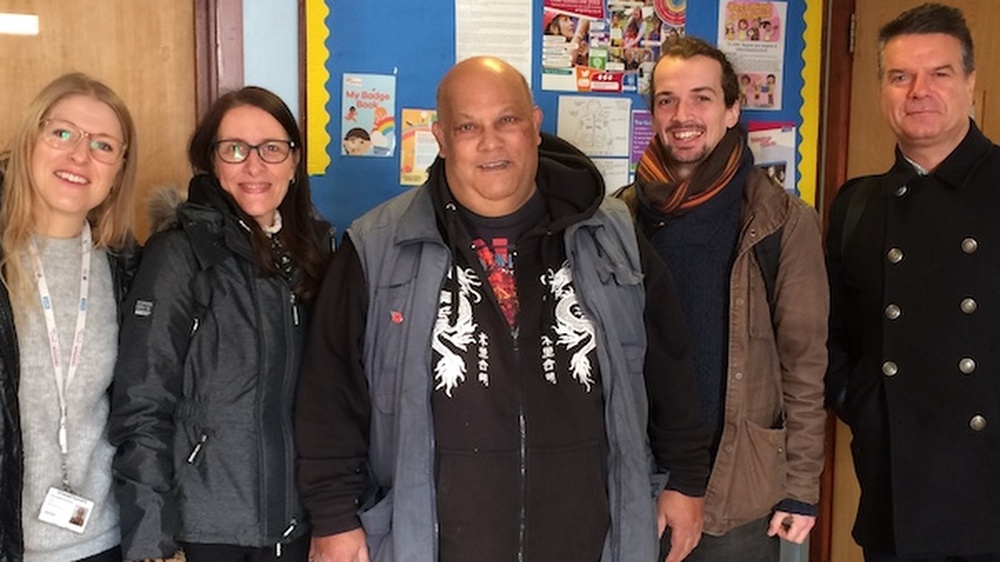Whilst Covid-19 has undoubtedly caused havoc around the world on nearly every aspect of our lives, it has also provided us with an opportunity to learn. Anecdotally at London Plus, we have seen multi-agency partnerships such as those between the voluntary sector and local government working together to support their local community.
Social prescribing relies on strong multi-agency partnerships. Link workers are often employed by charities, are situated in GP surgeries and then refer clients to various community organisations. This holistic approach is used to address health and social problems such as loneliness and poor mental health. Christine Melam, Chief Executive of the National Association of Social Prescribing Link Workers said in a recent article:
“During the pandemic GPs can make use of social prescribing link workers to support their patients to build resilience and take control of their health and wellbeing – both during this crisis and in the future”.
We asked James Moore from Croydon Voluntary Action (CVA) to talk to us about social prescribing during Covid-19. What we can learn from the pandemic? And is there too much focus on multi-agency partnerships rather than building social prescribing into the wider community?
James Moore – ABCD Community Builder, CVA
During a conversation around Social Prescribing, I spoke with someone who told me the value of the relationship that they had been able to build with her neighbour during Covid-19. Whilst working full time they had been collecting a prescription for their neighbour to collect in the mornings. This small gift prevented their neighbour from taking a risk, with no family nearby and reducing pressure on a service.
Small events like these of neighbour to neighbour kinship build community and friendship. With lasting impacts. The value of the reciprocal relationship will result in this person working more from home with other lasting positive factors; the sense of community is one very important factor.
For civil servants, Doctors and community workers paid to support residents and build communities this is the great expedition. How can we support people build strong reciprocal relationships with their neighbours within their communities?
Social Prescribing schemes can be a useful tool for signposting to weekly Social group sessions and referring on to relevant vocation’s (i.e employment support workers). However, there is a vast group of people who will enter Social Prescribing schemes that may not require another salaried stranger signposting them on to the next service. Or in advising them to join a local social group for lonely or isolated people.
Multi-agency partnerships are important but how do we build on community spirit?
Social Prescribing presents a valuable opportunity to build strong partnerships between the Doctors Surgery and the surrounding VCSE sector. But how can Social Prescribers contribute and enhance local people’s efforts in building community rather than a disproportionate focus on third sector groups and statutory services?
In Fieldway and New Addington within Croydon, residents and volunteers had mobilised to respond to the Covid-19 lockdown. They, delivered food, medications and other necessities to local people. Local people as local heroes responded by keeping shielded people and those with complex health and family issues safe within their homes. But it is in the manner of which the community carried out these tasks which has set the narrative of Community Building that will remain a blueprint for local authorities and policy makers in the field of community development to follow.
Delivering food and prescriptions to those in need but also inviting them to use their gifts and skills to contribute to the response led by the community to support large local institutions and services. Whether it was making scrubs from home to provide for local care homes or developing helplines for people isolated with no family or friends nearby or with mental health complications. Everyone’s gift is needed in the response to the pandemic in New Addington and Fieldway.
The wealth of resources and volunteers grew daily, providing the supply needed to meet the demand during the turbulent lockdown. With the local VCS sector quick on the communities heels enabling local authorities to do what it can do best whilst providing resources and services that the community could not do for itself.
Active Local People
Weekly conferences with Council and Community Partners now suddenly had the Community partner they had all been waiting for. Active local people, not in a service or an organisation, who had the capacity to do what VCS organisations, local authorities and the NHS were not equipped to do. The narrative of programs and services framed as “needed” for local people and communities to flourish had been turned upside down. During this crisis, it was the flourishing of volunteers and community that was needed to keep systems moving.
Whether it was Social Services, community nurses, social prescribers or local councillors the answers to the questions all remained the same; we should ask the Community.
Time after time the local resident’s association could facilitate social, political, medical or supplementary needs.
The challenges for many in community development roles and particularly Social Prescribing moving forward is:
- How can we contribute towards community building activity?
- How do we enhance the voices and solidify the development of the ground up equal partnerships between local people and services?
Collective action and decision are critical and in the words of Cormac Russell:
“Relationships travel at the speed of trust”.
London Plus Social Prescribing Case studies
We have long been champions of social prescribing here at London Plus. Take a look at some of the case studies we have published in the past. Highlighting the incredible social prescribing projects run by some of the organisations in our networks:
Community links social prescribing project

